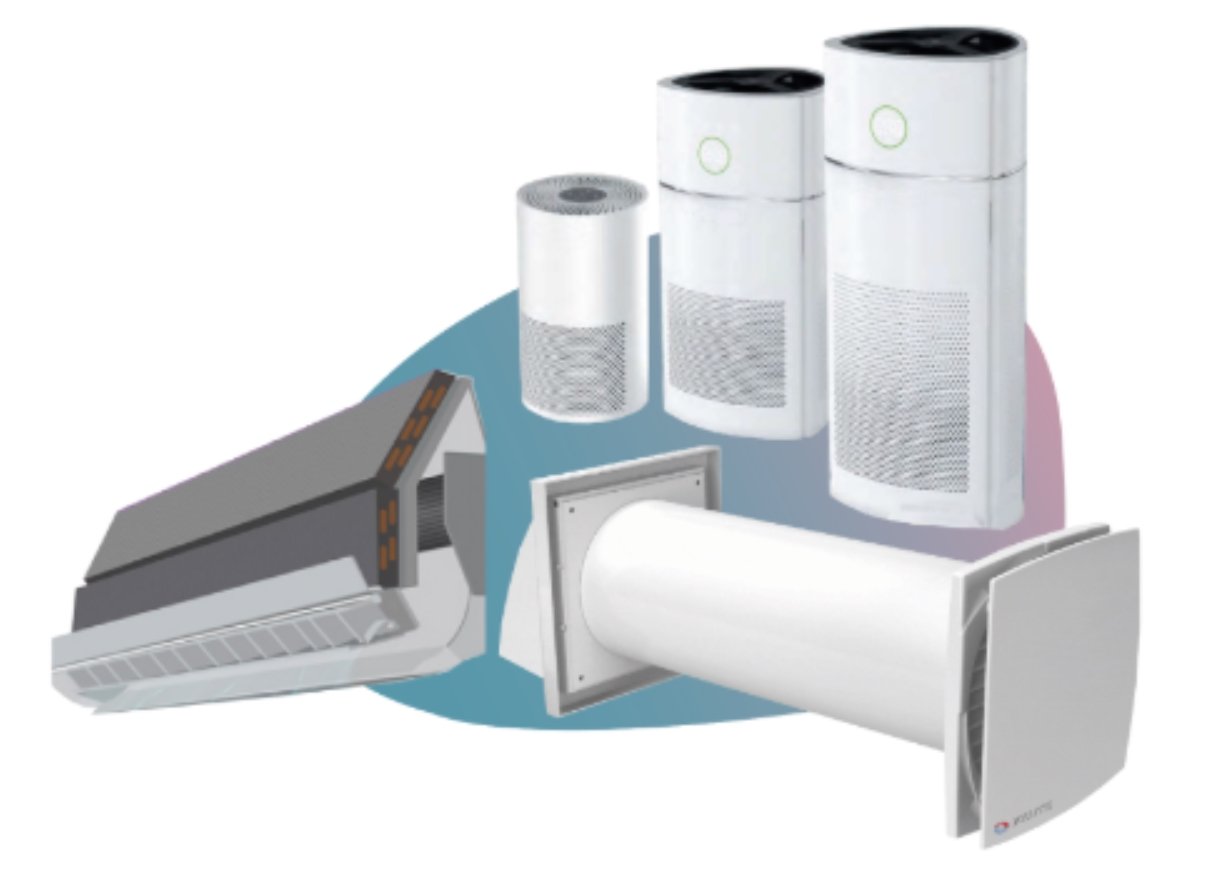
Air Purification - What is there to consider?
The Corona virus is constantly presenting us with new challenges: How can we still enjoy our daily lives relatively normally without being exposed to high levels of the virus? Especially in closed rooms with several people, indirect infection via the air we breathe is very likely.
Many experts agree that mobile air purifiers are the solution to drastically reduce the risk of infection within rooms, especially in winter.
But what exactly can this winter wonder weapon do and what should you watch out for when buying?
We have summarized the most important facts for you.
According to current knowledge, aerosols are the main route of transmission of the novel corona virus. Aerosols are the finest particles in the air that are expelled when breathing, speaking, coughing or sneezing and to which viruses can adhere. Above all, they can get into the airways of other people via the air they breathe and thus infect them.
Especially in closed indoor rooms, they can remain in the air for a longer period of time and thus pose a risk of infection. Air purifiers suck the room air through fans into the interior of the device, where the air is passed through various filters. The pollutants remain in the filter and the air is cleaned and expelled again. A cleaner usually consists of a combination of different filters - the aim is to produce the cleanest possible, filtered air. An air purifier reduces the concentration of viruses and germs and of course other pollutants in the room air such as dust, pollen and allergens. In this way, they can also help to significantly reduce the concentration of, for example, the current coronavirus in the room air.
Modern air purifiers, which can filter even particles as small as bacteria, aerosols and viruses, are particularly useful for waiting rooms in doctor's offices, for offices or for other public spaces such as canteens, hairdressing salons or nail salons. Wherever people come together and the air more or less stagnates, the risk of infection increases, which in turn can be reduced through the use of air purifiers.
However, users should keep in mind that they cannot completely replace push ventilation.
What does a HEPA filter do?
High Efficiency Particulate Airfilters (HEPA for short) are HEPA filters that remove dirt particles between 0.1 and 0.3 micrometers (µm) in size. They can remove up to 99.9 percent of viruses, dust, pollen, bacteria, mite eggs and mite excrement or smoke particles from the air.
Important: According to experts, HEPA filters for capturing coronaviruses should be classified as H13 or H14.
Mobile Air Purifiers: What should you look for when buying?
Air exchange rate per Hour (Performance of the Air Purifier):
First, Calculate the volume of the Corresponding room.
(Length x Width x Height). To ensure adequate protection against infections, the air purifier used for the selected room should be able to completely clean the room air at least 2-5 times per hour (depending on the number of people in the room). The air flow rate per hour expresses the required Air Circulation capacity of an air purifier. The manufacturer's specifications usually include direct information about the maximum recommended room size for the particular Air Purifier, so you do not need to calculate the required value yourself.
Lineup:
The more centrally an Air Purifier is placed, the easier it can absorb and clean the room air. Its air must never be vented against a wall.
The Filters:
HEPA class 13 or 14 or higher is required to remove SARS-CoV-2 viruses. But even the most expensive professional devices never catch 100 percent of all viruses, which is why distance, hand washing and classic ventilation should not be neglected.
The Hygiene:
The Filters have to be changed regularly, which is why buyers should also pay attention to possible follow-up costs. Some filter systems are also equipped with a UV light or heating mode to kill accumulated viruses or bacteria.
According to VDI6022, prefilters should be changed at least once a year, HEPA filters every 2 years. Some manufacturers recommend a shorter change cycle.
The Volume:
Since the air purifier should run continuously, the volume is crucial. Especially in schools and offices, a low operating volume is necessary so as not to disturb concentration.
What are the Alternatives?
Controlled residential ventilation
Controlled residential ventilation systems ensure the minimum hygienic air exchange rate and thus make a decisive contribution to preventing mold and protecting the building fabric. Depending on the area of application and architectural requirements, practical systems consisting of centralized and decentralized units are available. Systems with summer bypass also bring fresh outside air into the building without heating. By supplying fresh air, these can also help to reduce the virus load in the room, since most devices include heat recovery, hardly any heat is lost.
UV-C Retrofit kits for wall Air Conditioners
A simple retrofit system for all existing wall mounted units to treat and protect the air with constant UV-C disinfection each time air passes through the unit. The retrofit kit uses the disinfecting properties of UV-C light to clean the air with your air conditioner. Warm and dirty air is immersed in UV-C light around the evaporator for purification. The result: Cooled Air that is 99.9% free of viruses, bacteria, fungi and odors.
These are some important points that you should consider.
If you have any further questions, please contact us! We will be happy to advise you.

Comments (0)